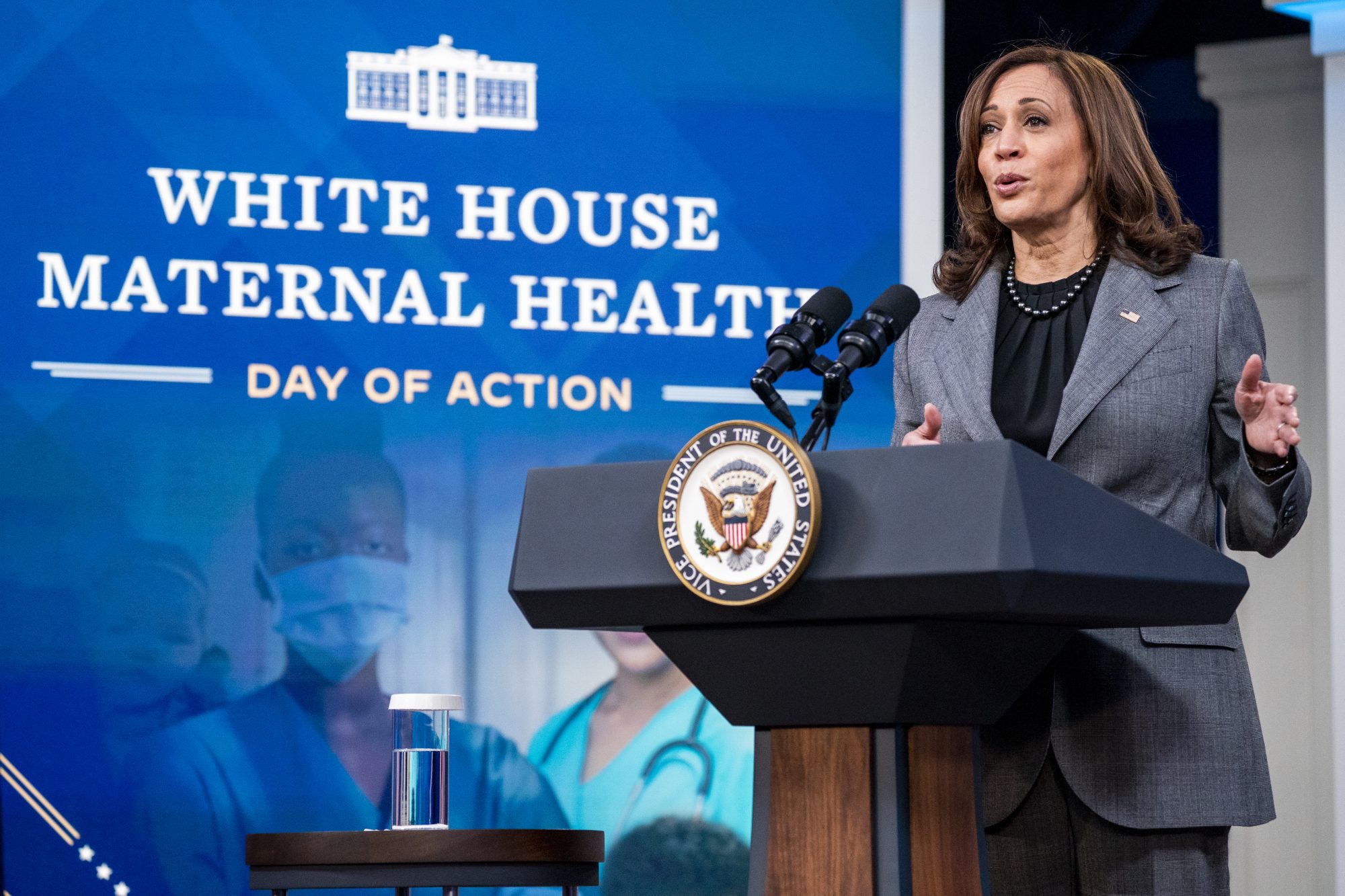
It's no secret that maternal health care in the United States is in crisis. With the highest maternal mortality rate compared to similar countries, the U.S. needs a plan to reverse these poor outcomes. On Tuesday, the White House announced initiatives to do just that: take action to reduce the number of birthing people who die or are injured during pregnancy and childbirth.
Vice President Kamala Harris hosted the White House's first Maternal Health Day of Action Tuesday on behalf of the Biden Administration. Harris noted it's not enough to know the disparities that Black and Native American birthing people and those who live in maternity care deserts experience — it's critical that we act. She then announced a new initiative rating hospitals as "birthing-friendly," a designation given to hospitals that actively work to improve patient safety and maternal outcomes.
Harris also presented new guidance from the Centers for Medicare & Medicaid Services (CMS) to expand postpartum coverage for Medicaid and CHIP programs, state-administered health care coverage programs for low-income families, from the current 60 days to 1 year.
Pregnancy-related deaths can occur during pregnancy, at delivery, or up to a year postpartum. But according to the CDC, three of every five, or roughly 60 percent, of pregnancy-related deaths can be prevented with access to regular, quality medical care. This coverage expansion means that pregnant people and their families have access to essential services — including pelvic exams, postpartum mental health screenings, and checkups — during this sensitive window.
Olympic sprinter and maternal health advocate Allyson Felix was one of many well-known advocates and changemakers in the room as Harris spoke about the urgency of coming together to solve the maternal health crisis. Corporations have lent their support to the cause as well.
Harris says 20 companies and nonprofits — including Pampers, the American College of Obstetricians and Gynecologists, and Lyft — pledge to invest more than $20 million in efforts to improve maternal care in the U.S. They also pledged $150 million toward global efforts for resources like remote patient monitoring in rural communities, innovative care models for the postpartum stage, and education for maternal health care providers.
The Day of Action is the latest in a series of this administration's efforts to bring attention to the state of maternal care in the U.S. In April, President Biden proclaimed April 11–17 the first Black Maternal Health Week. Because the $3 billion investment in maternal health care is tied to the Build Back Better Act, Harris urges the Senate to approve the bill and for states to extend postpartum coverage independent of the Senate's decision in the meantime.





